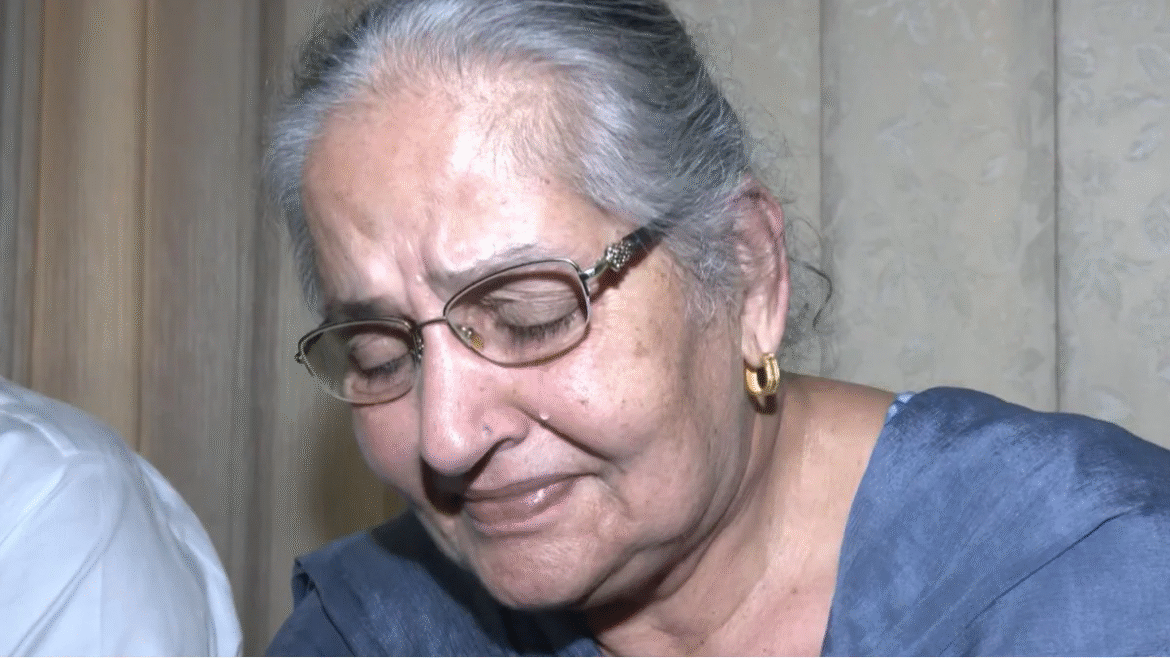AI Generated Summary
- Over the years, she became part of the Punjabi community in the San Francisco Bay Area, working in a saree store and helping raise her grandchildren in Hercules.
- Deported on September 22, Kaur now stays in Mohali with a distant relative, trying to come to terms with the loss of the life she built in California.
- As she sits quietly in a corner of her temporary home, Kaur remains haunted by memories of California and the voices of her grandchildren across the ocean.
After more than three decades in the United States, 73-year-old Harjit Kaur has found herself back in India, alone and uncertain of her future. Deported on September 22, Kaur now stays in Mohali with a distant relative, trying to come to terms with the loss of the life she built in California.
Kaur had migrated to the US in 1992 with her two young sons, seeking a better life. Over the years, she became part of the Punjabi community in the San Francisco Bay Area, working in a saree store and helping raise her grandchildren in Hercules. Her family — including her children and grandchildren — still live there.
Today, Kaur’s days begin with calls from her grandchildren in the US, anxiously asking whether she has eaten or has a bed to sleep on. “My grandkids keep calling to ask if I have food and clothes,” she said tearfully. “I still cannot process what I’m going to do now.”
A Shattering End to a Long Journey
Kaur’s deportation followed a long and painful immigration battle. She had applied for asylum decades ago, but US immigration authorities say her case had gone through “decades of due process,” with a removal order issued in 2005. Earlier this month, when she reported to the US Immigration and Customs Enforcement (ICE) office in San Francisco — as she had done regularly for years — she was unexpectedly detained.
“She was arrested abruptly and told she would be deported,” said Kulwant Singh, her relative in Mohali. “It’s only been a few days since she returned, and she’s still in shock.”
Kaur said she had entered the US through an agent and did not possess a passport at the time. Despite her undocumented status, she built a life in California, surrounded by family and friends who affectionately called her “grandma.”
Eight Days in Detention
Recounting her final days in the US, Kaur described the ordeal she faced while being held at a detention facility. “They handcuffed me when taking me to the centre,” she said. “The food was awful — cold bread, cheese, and turkey. Being vegetarian, I could barely eat.”
She recalled being forced to sleep on aluminium foil with just two thin sheets and no mattress. “It was so cold that I couldn’t sleep,” she added. “Some women there took pity on me and gave me extra clothes to stay warm.”
She also alleged that despite repeated requests, she was denied her regular medication for knee pain, migraines, and blood pressure. “From the time I was arrested until I reached Delhi, I wasn’t even allowed to take a bath,” she said.
Alone in Her Homeland
Now back in Punjab, Kaur’s world has turned upside down. Her husband, parents, and brothers have all passed away. She has a younger brother in Patti but is unsure how long she will be able to stay with him. For now, she has found temporary refuge with her brother-in-law in Mohali.
“I urge the Punjab government and the Centre to help me reunite with my family in the US,” Kaur pleaded. Despite her trauma, she still holds on to hope that she might one day be allowed back to the only place she has known as home for the past 33 years.
Community members in the US, many of whom are Punjabi immigrants, have begun speaking out in her support, describing her deportation as deeply unjust. For them, “grandma” was a symbol of resilience and love — and they are now calling for compassion and intervention.
As she sits quietly in a corner of her temporary home, Kaur remains haunted by memories of California and the voices of her grandchildren across the ocean. “They keep asking if I am okay,” she said softly. “But I don’t know how to answer them.”




